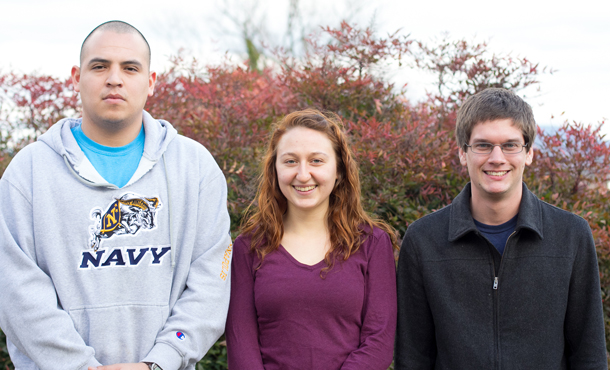Peacebuilding and development majors at Eastern Mennonite University may now receive financial aid for overseas summer practicums.
A two-year, $20,000 grant from the United Service Foundation – an Anabaptist-rooted organization based in New Holland, Pa. – will enable eight students total to do international work, primarily in Colombia, in 2013 and 2014.
Gloria Rhodes, PhD, who chairs the department of applied social sciences and coordinates the undergraduate major in peacebuilding and development, applied for the grant at the foundation’s invitation. It provides $2,000 each for four students each summer to cover credit hours, airfare, and up to three months’ living expenses, with remaining funds supporting administrative costs.
“This is a marvelous opportunity,” Rhodes said. EMU has 45 students majoring in peacebuilding and development, who are all required to complete practicums, or supervised practical applications of learned skills and theory. This requirement puts pressure on EMU to locate and support appropriate placements. Typically, the practicums are completed in Washington D.C.
Three recipients have been named and a fourth is yet to be announced. The grant recipients for the summer of 2013 are: Carlos Romero, Krista Rittenhouse – heading to Colombia – and Corben Boshart, who will be in Iran.
The students in Colombia will be under the direction of Terrence “Terry” Jantzi, PhD, a former professor of sociology at EMU, who is now Mennonite Central Committee (MCC) co-director for Colombia.
Jantzi notes that following 30 years of internal conflict, “Colombia is by far the most violent country in Latin America,” ranking No. 2 worldwide both for internally displaced persons and economic disparities (behind Sudan and Haiti, respectively).
“There is still considerable violence, conflict, poverty and displacement,” Jantzi says. As a sign of progress, the Colombian Supreme Court recently ruled that victims may petition the government for reparations. “There is more work being done with local community mobilization,” says Jantzi, including thirty regional communities preparing to demand that their regional government, in Cartagena, comply with the law.
Jantzi – who moved to Colombia following a two-year leave of absence from EMU for work in Albania – expects practicum students to primarily conduct “research and documentation of both the circumstances of the violence” and “local authority compliance with the Supreme Court edicts.”
Most practicums in Colombia will require fluency in Spanish. Students will live with host families in regions where MCC works with partner organizations.
“We would like to take advantage of this grant to systematically increase the number of undergraduates coming to Colombia. The barrier in the past has always been the availability of funding,” Jantzi says. He hopes the funding from United Service Foundation will open opportunities to undergraduates that until now have only been available for older adults, typically college graduates or graduate students.
